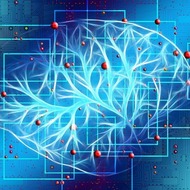
(View Complete Item Description)
Everyone will be impacted by AI in daily life and in the workplaces of the future. It is critical for all students to have fundamental knowledge of AI and to understand AI’s potential for good and harm. The Daily-AI program will jumpstart your readiness for AI and give you the tools you need to prepare for the AI-enabled world.
The Daily-AI workshop, designed by MIT educators and experienced facilitators, features hands-on and computer-based activities on AI concepts, ethical issues in AI, creative expression using AI, and how AI relates to your future. You will experience training and using machine learning to make predictions, investigate bias in machine learning applications, use generative adversarial networks to create novel works of art, and learn to recognize the AI you interact with daily and in the world around you.
This curriculum is currently being piloted through NSF EAGER Grant 2022502. This is a joint venture between the Personal Robots Group at the MIT Media Lab, MIT STEP Lab, and Boston College.
Contents:
Unit 0: What is AI?
- What is AI
- Algorithms as Opinions
- Ethical Matrix
- Decision Trees
- Investigating Bias
Unit 1: Supervised Machine Learning
- Introduction to Supervised Machine Learning
- Neural Networks
- Classifying AI vs. Generating AI
Unit 2: GANs
- What are GANs?
- Generator vs. Discriminator
- Unanticipated Consequences of Technology
- AI Generated Art
- What are Deepfakes?
- Spread of Misinformation
- Generate a Story
Unit 3: AI + My Future
- Environmental Impact of AI
- Redesign YouTube
- Careers in AI
Material Type:
Full Course,
Interactive,
Lecture,
Module
Authors:
Cynthia Breazeal,
Irene Lee,
MIT Media Lab Personal Robots Group,
MIT STEP Lab















